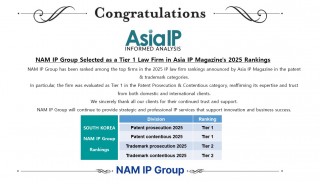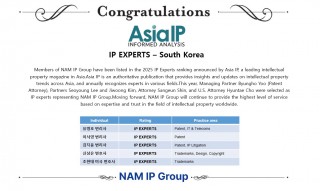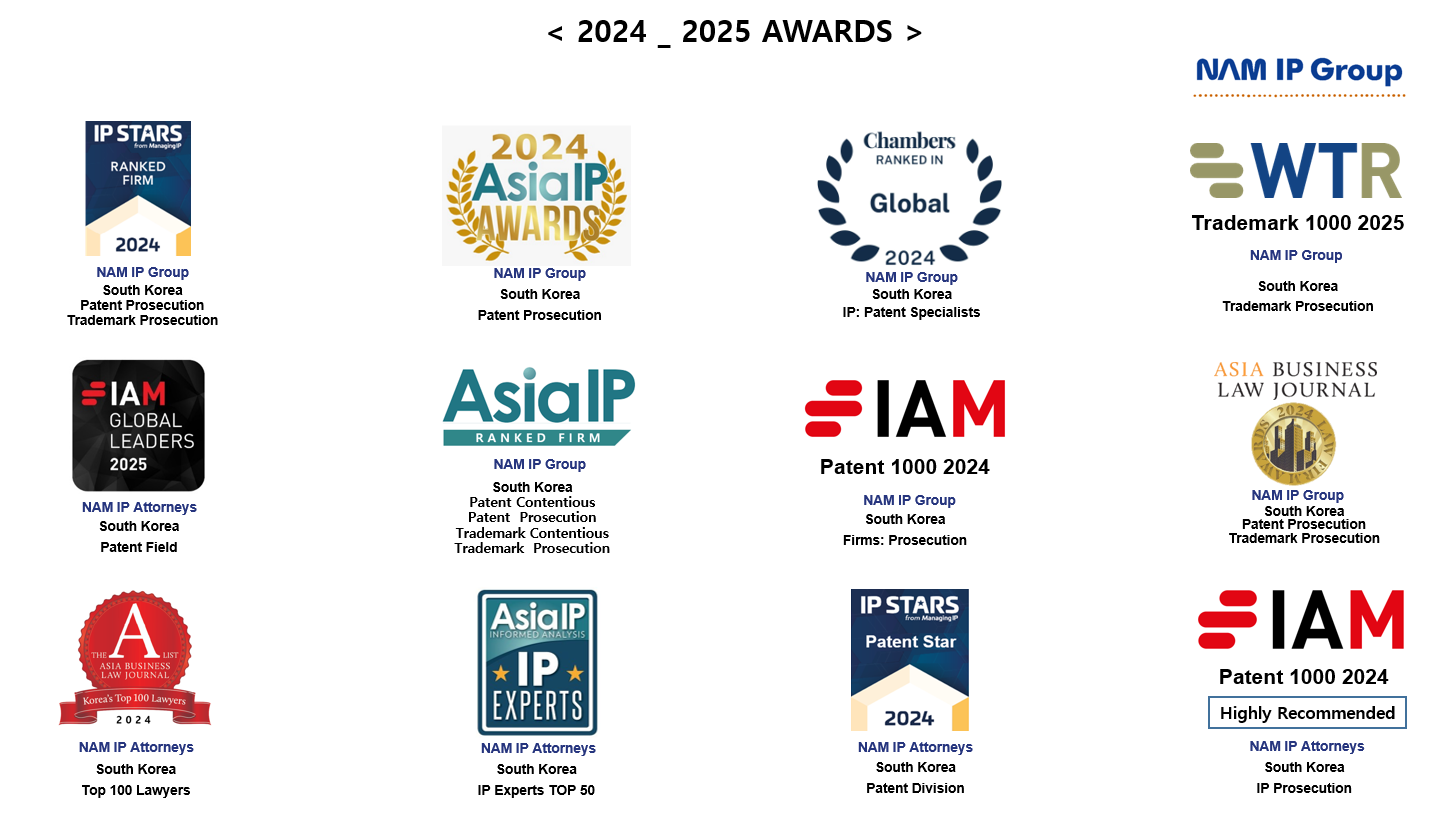Explore NAM IP Group
NAM IP Group is a Korean law firm specializing in intellectual property, serving global clients.
Professionals
Ben (beyong-ho) YUU
Managing Partner
Byung-kyu KIM
Partner
Chang-hak SHIN
Sr. Patent Attorney
Jae-hwan SIM
Partner
Ji-woong KIM
Partner
Jonathan MASTERS
Trademark Attorney (AU)
Kwei-rye HA
Partner
Min-kyeong SHIN
Sr. Patent Attorney
Bo-ra KIM
Patent Attorney
Jae-woo BYEON
Sr. Patent Attorney
Kwan-ju PARK
Sr. Patent Attorney
Seo-wu LEE
Patent Attorney
Seon-young KIM
Sr. Patent Attorney
Na-ra YI
Patent Attorney
Justin HWANG
Sr. Patent Attorney
Hai-Hua ZHANG
Foreign Attorney(CN)
Reiko TOMONAGA
Regional Expert (Japanese)
Sang-hun JUNG
Sr. Patent Attorney
Seo-young LEE
Partner
Seung-whan KIM
Partner
Si-jung LEE
Partner
Si-yong LEE
Partner
Sung-wook KIM
Partner
Woo-hyun NAM
Partner
Yong-kyun KIM
Sr. Patent Attorney
Young-joo YOUN
Sr. Patent Attorney
Young-jun CHOI
Sr. Patent Attorney
Young-min KIM
Partner





